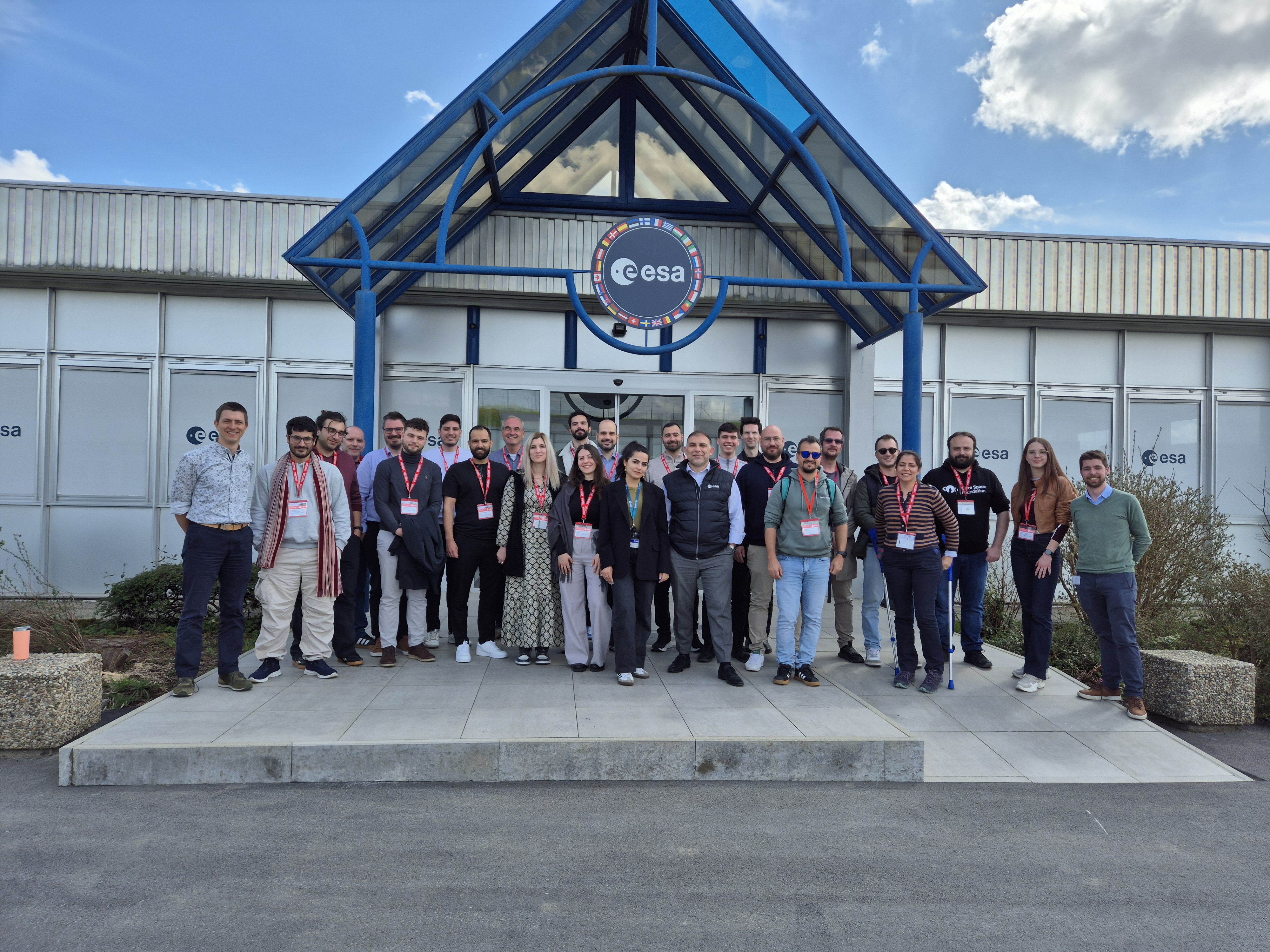ESA further supports seven Greek CubeSat missions as part of Operations Workshop

Seven Greek In-Orbit Demonstration (IOD) CubeSat teams came together with experts from the European Space Agency (ESA) in an Operations Workshop at the Agency’s European Space Security and Education Centre (ESEC) in Redu, Belgium. Taking place between 14-16 April, the workshop provided a deep dive into key aspects of CubeSat operations, with emphasis on Launch and Early Orbit Phase (LEOP), as well as IOD. It was organised as part of the continued support for the Greek space sector provided by ESA’s Connectivity and Secure Communications.
The comprehensive three-day workshop included practical training on spacecraft operations, mission management during critical phases, and the application of secure optical communications in space missions fostering knowledge transfer and identifying effective approaches for ensuring successful IOD mission operations.
The workshop enabled practical skills development across the space operations ecosystem, with first-hand experience from ESA's PROBA operations team and detailed lessons on managing the critical LEOP of missions.
Concluding with a visit to the PROBA Mission Control Centre and ground stations, the workshop has established a strong foundation for the seven IOD missions scheduled for launch this year and early 2026.
With the Greek Connectivity Operations Workshop now completed, the Greek IOD CubeSat teams are one step closer to successfully commencing their missions in orbit in the coming year. These seven IOD missions will demonstrate a variety of advanced space applications:
- Hellenic Space Dawn (EMTech SPACE): A mission featuring two 8U CubeSats, Helios and Selene, carrying payloads for in-space data processing, Earth observation, inter-satellite links, and secure optical communications.
- PHASMA (Libre Space Foundation): A dual 3U CubeSat mission designed for radio frequency signal detection and monitoring, with two identical satellites flying in proximity.
- OptiSat (Planetek Hellas): A 6U CubeSat dedicated to secure optical communication and space-based data processing, including automated cloud coverage assessment.
- ERMIS (National and Kapodistrian University of Athens): A constellation of three CubeSats - two 6U satellites focusing on Internet of Things (IoT) applications and utilising S-band inter-satellite link, and an 8U satellite equipped with a hyperspectral camera for precision agriculture and optical communications.
- MICE-1 (Prisma Electronics SA): A 3U CubeSat enhancing maritime tracking in the Mediterranean Sea through Automatic Identification System (AIS) signal reception and Internet of Things (IoT) communication.
- PeakSat (Aristotle University of Thessaloniki): A 3U CubeSat aiming to demonstrate space-to-ground laser-optical links with optical ground stations in Greece.
- DUTHSat-2 (Democritus University of Thrace): A 6U CubeSat designed to capture visible and near-infrared images for oil spill detection and soil moisture monitoring, while also demonstrating secure communication.
The Greek National Satellite Project is managed by the ESA Greek Connectivity RRF Project Team on behalf of the Hellenic Ministry of Digital Governance. It is part of the National Recovery and Resilience Plan ‘Greece 2.0’, and funded by the Recovery and Resilience Facility (RRF), a core programme of the European Union’s NextGenerationEU.
"My amazing Greek Connectivity team and myself are pleased to be able to support these Greek projects with access to leading European CubeSat operations expertise, through this dedicated and tailored workshop,” said Frédéric Rouesnel, Greek Connectivity RRF Project Manager at ESA’s Connectivity and Secure Communications. “ESA's Connectivity and Secure Communications and its Satellite Programmes Department are proud to see these missions progressing towards launch and operations in the near future, allowing them to benefit Greece from orbit and to shine beyond the Greek borders.”
René Wittmann, PROBA Spacecraft Operations Manager at ESA’s Operations, said: "We are happy to support the CubeSat teams with our experience in operating techno-demo missions. While the five PROBA satellites [that we're working on] are slightly larger, a lot of knowledge is transferrable to CubeSats."
“We would like to thank ESA for organising this Operational Workshop, which gave significant insights into spacecraft operations and mission management, preparing them adequately for the upcoming In-Orbit Demonstration phase," said Prof. K. Karantzalos, Secretary General of Telecommunications & Post, at the Hellenic Space Center.


